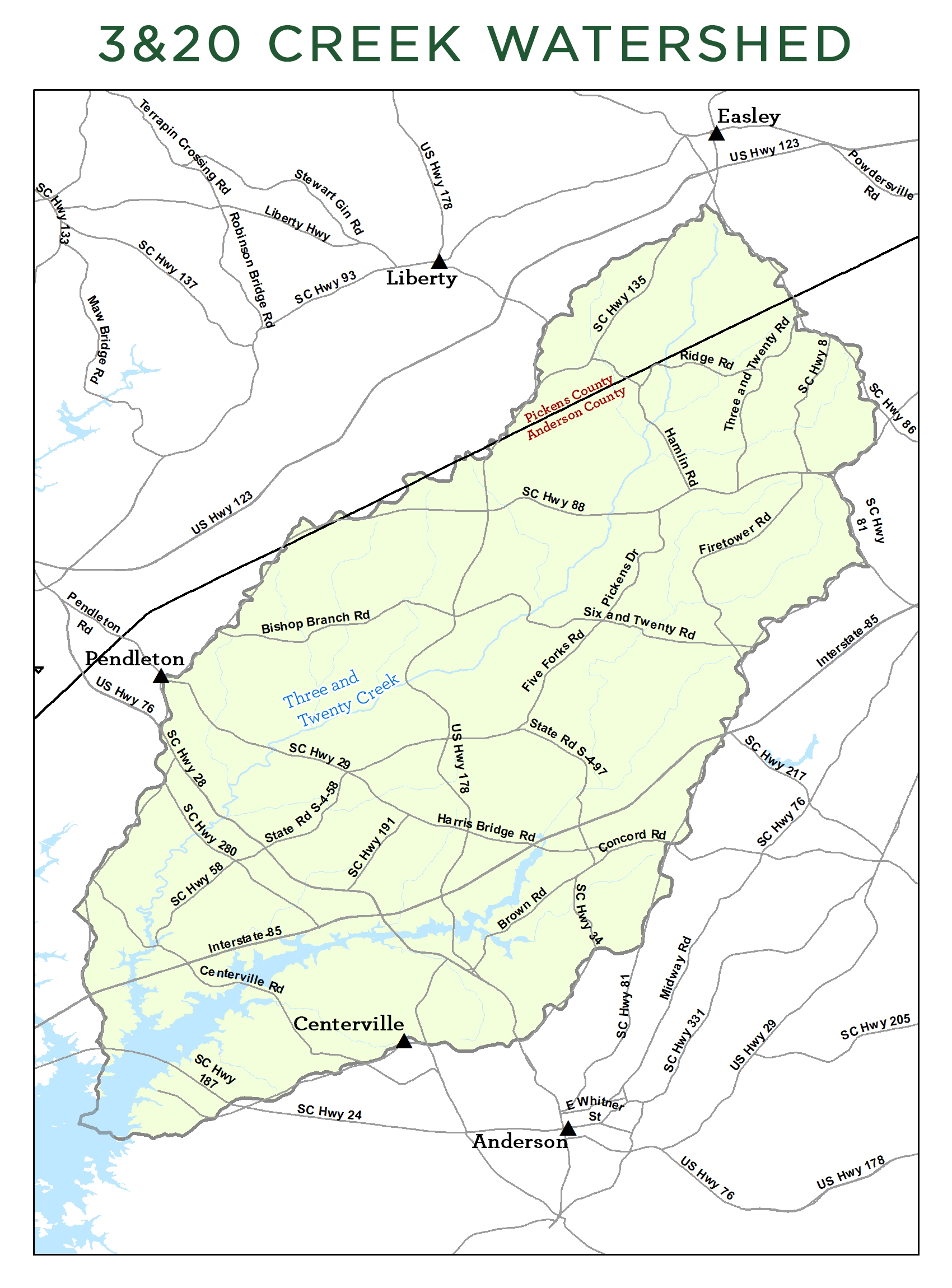The Water Log: What does your septic system have to do with water quality?
September 29th, 2021
By Erika Hollis
I know this potty talk might be the last thing you expected to read today, but hear me out — healthy and property functioning septic systems are critical to protecting local water quality.
By keeping your septic system working properly, harmful bacteria and other contaminants are prevented from getting into our local waterways, which helps protect us and our environment. Read on to learn how septic systems work, common signs of septic failure, and how Upstate Forever is helping local landowners repair or replace failing septic systems.
As always, thank you for your interest in our work and for helping to protect Upstate SC’s treasured water resources. And remember, toilets aren’t trashcans. Please flush responsibly!

Erika Hollis
Clean Water Director
Upstate Forever
How does a septic system work?
Septic systems are commonly used in rural areas without centralized sewer systems to treat and dispose of used water from your home, including water from sinks, washing machines, dishwashers, and toilets. After leaving your home in pipes, water travels to an underground tank where the solids settle at the bottom, fats/oils/greases float to the top, and the remaining water flows out into a drainfield. The drainfield, which is a system of buried pipes, allows the wastewater (known as effluent) to slowly settle into the soil. When a septic system isn’t properly maintained or is in disrepair, homeowners might experience untreated sewage backups in their homes or yards. That untreated sewage can contaminate surface or ground water with bacteria, viruses, and pathogens, which is a concern for human health.
Signs of Septic System Failure
The most common signs of a septic system failure include:
- Wastewater backup in your home’s drains/toilets
- Drains/toilets draining slowly or not at all
- Gurgling sounds in plumbing system
- Spots in your yard that are always wet, spongy, or muddy regardless of weather
- Pooling water or muddy soil around your septic system or in your basement
- A strong, foul odor around the septic tank and drainfield
Upstate Forever can help!
If you think your septic system is malfunctioning, the first step is to call a septic professional to assess the problem and identify solutions.
Since 2011, Upstate Forever has been working in watersheds across the Upstate to protect critical drinking water sources. Thanks to funding from SCDHEC, Upstate Forever can pay up to 60% of the costs for interested landowners in select watersheds to repair or replace failing septic systems. Currently, we have funding available for projects in the North, Middle, and South Tyger River watersheds as well as the 3&20 Creek watershed.


For residents living in the Lake Keowee area, grant funding for septic systems repairs is available through the Lake Keowee Source Water Protection Team. This funding is available on a first-come, first served basis, so contact us as soon as possible if you’re interested in participating!
Keep your septic tank and your wallet happy while keeping waterways clean and safe!
Septic tanks should be pumped every 3-5 years and the average cost typically ranges between $250-500. For perspective, repairs to a failing septic system cost on average between $3,000-$5,000 and upwards of $10,000. Recently, UF assisted a landowner with a repair that cost $14,000! By investing in routine septic maintenance every 3-5 years, you can help keep your system working properly, protect water quality, and save money.
We need your help!
Upstate Forever strives to protect water quality for the benefit of all Upstate residents, but we need your help. By keeping your septic system working properly, harmful bacteria and other contaminants are prevented from getting into our local waterways, which helps protect us and our environment.
For more information on how to keep your septic system working properly, visit these websites:
- Clemson University - Be Septic Safe
- SCDHEC – Septic Tanks
- EPA – Septic Systems Overview
Until next time
Thank you for joining me for The Water Log, Upstate Forever's periodic newsletter dedicated to clean water issues and advocacy!
If you would like to receive The Water Log in your inbox or know someone who might like to receive this newsletter, please send them to this link to sign up: upstateforever.org/email
Have clean water questions or comments? Want to see if you qualify for septic repair assistance? Contact me at ehollis@upstateforever.org.

